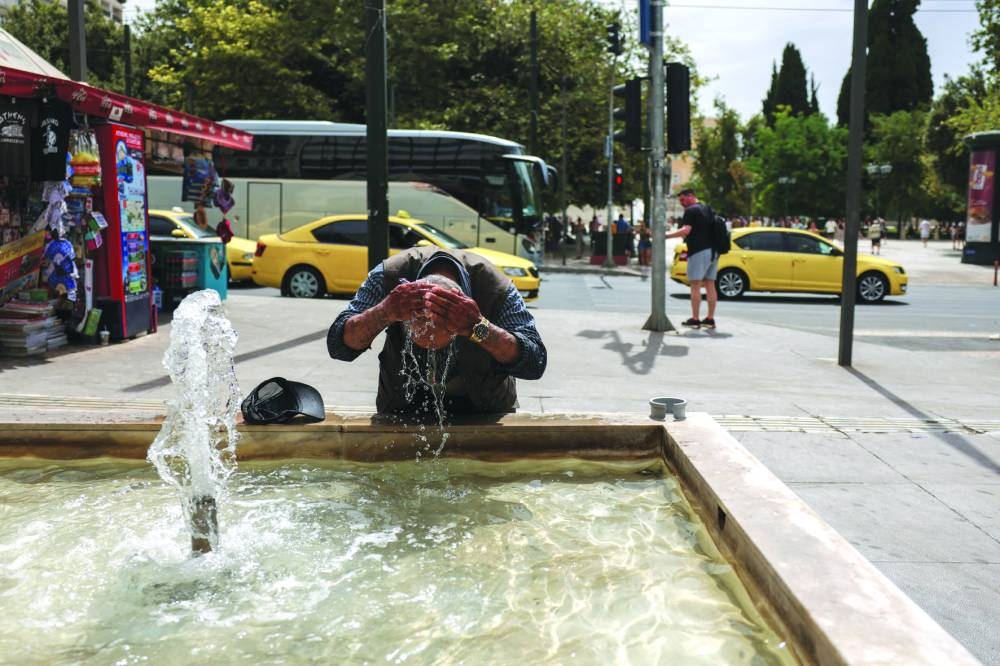The Athens Acropolis, Greece’s most visited tourist attraction, was closed to the public during the hottest hours yesterday for the second day running, as tourists sweltered under the country’s earliest-ever heatwave.
Tourists were unable to visit the Parthenon and other ancient masterpieces atop the Unesco-listed archaeological site between noon and 5pm local time (0900 to 1400 GMT).
Many primary schools and nurseries across the country were closed to protect students from the heat, which was expected to recede tomorrow.
In Athens, tourists stopped at drinking fountains to cool their heads and necks. Locals sat in air conditioned rooms set up by the city, using handheld fans to create a breeze.
Firefighters who put out several wildfires on Wednesday remained on high alert as strong winds were expected to hit several parts of the country.
Meteorologists have noted it is the earliest heatwave – which for Greece means temperatures exceeding 38° Celsius (100° Fahrenheit) for at least three days – on record.
In central Athens, the mercury climbed to 42C, with the forecast heat prompting health warnings and school closures.
Still hotter temperatures were recorded on the island of Crete – 44.5C – and on the Peloponnese peninsula – 43.9C – according to the meteo.gr website of the Athens National Observatory.
Several other Greek archaeological sites in Crete, the Dodecanese, the Cyclades and the Peloponnese were also shut as a precaution against the heat.
Greece’s climate crisis and civil protection minister, Vassilis Kikilias, warned of the risk of fire due to strong winds that could blow across the country.
Civil protection was on “high alert”, he added.
The risk of fire will be “very high” today in ten regions, including in Attica, which surrounds Athens, his ministry also warned.
Temperatures are expected to ease from today.
The Acropolis was forced to close in July last year during a two-week heatwave that was unprecedented in its duration.
It was followed by fires that, according to the National Observatory of Athens, consumed nearly 175,000 hectares (432,000 acres) of forest and farmland.
A record number of almost 4mn visitors flocked to the Acropolis in 2023, its popularity boosted in part due to tourists arriving on cruise ships calling in at the nearby port of Piraeus.
Greece is one of the most hard-hit countries by global warming in Europe, with rising temperatures fuelling deadly fires and erratic rains in recent years.
Athens, a city of 5mn people which sits in a coastal bowl jammed with apartment blocks and flanked by mountains, is one of the hottest cities in Europe.
Scientists warn that summer temperatures there could rise by an average of 2C by 2050.
Athens mayor Haris Doukas has tried to create more shade by planting 2,000 trees.
“Our first goal shall be to lower the median temperature, the felt-air temperature,” he told Reuters. “There are areas where the temperature is 15 or 20 times higher on cement or a city road, compared to a shady area.”

A man cools down with water from a fountain as a heatwave hits Athens.
